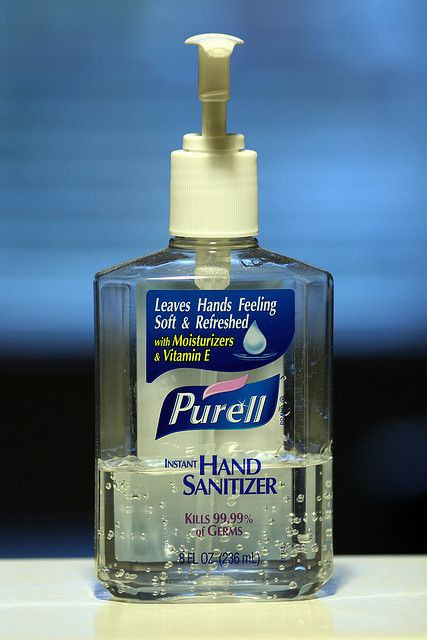Drinking Hand Sanitizer On The Rise For US Kids Under 12: Why The Trend Is Even More Dangerous Than Drinking Beer And Wine

According to a recent analysis conducted by the Georgia Poison Center, there has been a nearly 400 percent increase in calls related to children younger than 12 ingesting hand sanitizer since 2010. Health experts are now warning of the dangers of underage children using it as a cheap and easy way to get a buzz.
Drinking hand sanitizer reportedly began in New Zealand, but social media outlets such as YouTube helped the practice quickly go global. In the past five years, poison control centers throughout America have seen an unprecedented number of calls related to alcohol poisoning from drinking hand sanitizer, with 3,266 hand sanitizer cases in 2010 jumping to 16,117 by 2014, CNN reported.
"Kids are getting into these products more frequently, and unfortunately, there's a percentage of them going to the emergency room," Dr. Gaylord Lopez, director of the Georgia Poison Center, told CNN.
Alcohol is a chemical by-product produced by fermenting yeast, sugar, and starches. When ingested, this drug directly affects the central nervous system and has a sedative effect. In small amounts, alcohol can produce feelings of euphoria, relaxation, and according to a 2012 Gallup survey, 66 percent of Americans over the age of 21 enjoy the occasional drink. The average bottle of wine is 12 percent alcohol and the average beer is only around 5 percent alcohol, but bottles of hand sanitizer range from 45 to 95 percent alcohol.
The problem with hand sanitizer is that although it gives you a buzz similar to one from drinking traditional alcohol, its much higher alcohol content means you get drunk much faster and significantly increase your risk of developing alcohol poisoning — a serious and sometimes life-threatening condition caused by ingesting too much alcohol. Alcohol poisoning can lead to a number of conditions, including seizures, cardiac arrest, vomiting, coma, and in some cases the patient will stop breathing and subsequently die. According to The Huffington Post, other conditions that have been specifically linked to drinking hand sanitizer include diarrhea, memory loss, blindness, and irreversible organ damage.
CNN reported that one 6-year-old girl landed in the hospital with a blood alcohol level of .179 after drinking only about three or four squirts of strawberry scented hand sanitizer.
"A kid is not thinking this is bad for them," Lopez said. "A lot of the more attractive (hand sanitizers) are the ones that are scented. There are strawberry, grape, orange-flavored hand sanitizers that are very appealing to kids."
Children and adolescents are either drinking hand sanitizer on a dare from their friends, or do it with the sole intention of getting drunk. Adolescents are also known to mix hand sanitizer with Listerine to make a "strong cocktail" or use salt to separate the alcohol from the sanitizer solution, BuzzFeed News reported.
Parents are advised to purchase a foam version of hand sanitizer, which is more difficult to extract alcohol from, in order to discourage kids from partaking in this trend, and keep all hand sanitizers out of easy reach.



























